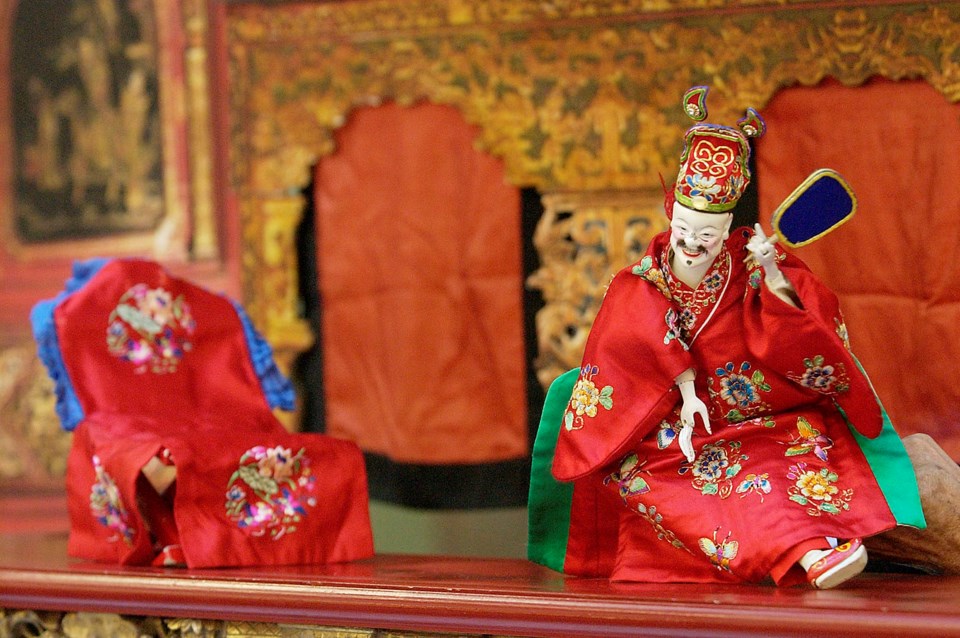The Museum of Anthropology at UBC has embarked on a four-year initiative entitled, Spotlight Taiwan, which focuses on Taiwan’s complex, multifaceted identity. As a part of this journey, MOA is pleased to present the Ouxi Taiwanese Puppetry Festival taking place from Nov. 4 to 9.
“MOA is a place of world arts and culture,” explained Jill Baird, curator of education and public programs at MOA. While the museum's main focus is on the First Nations of the North West coast, as an educational facility they aim to explore many rounded corners of the globe.
“From our perspective this is a project coming along a continuum of years of work,” says Baird. “It is important to MOA that we communicate our world wide interests, without losing our core of First Nations.”
Baird and her team at MOA have certainly succeeded in meeting this objective, with the introduction of an event that boldly aims to challenge cultural boundaries. Baird has invited two Haida artists to meet with the visiting Taiwanese puppeteers, where they will “creatively play” to produce an experimental, collaborative performance, which premiered at MOA on Sunday.
In asking what audiences could expect from this unique partnership, Baird explained, “I don’t know what [the collaborators] will come up with, but I’m sure it will be interesting. Part of the fun of experimenting is you just don’t know what to expect.”
This significant cultural exchange is but only one aspect of the dynamic puppetry festival, which intends to immerse Vancouverites in Taiwanese culture. Baird has invited two different puppetry troupes, one that will perform using glove puppets, complete with live musicians, the other, a traditional marionette troupe. Each troupe will be performing at MOA on Saturday, Nov. 8 and are free with admission to the museum.
“Another part of the Spotlight Taiwan initiative is exploring how traditions are sustained in the 21st century,” Baird said.
For Taiwan and puppetry the answer is, greatly. In August of this year, MOA hosted Come Play With Us, an event dedicated to Pili puppetry. Pili is a Taiwanese puppet series that, unlike traditional puppetry, uses animation to help represent the art of fighting. The series started in 1985 and it remains as one of Taiwan’s most popular TV shows to date. In Taiwan, “the [Pili] puppets are like pop stars,” noted Baird.
The focus of this upcoming festival, however, is to illustrate the entertaining tradition of live puppetry as it is practiced in puppet theatres in Taiwan.
“Puppetry is still so popular in Taiwan and I wanted to bring that here,” says Baird. She hopes Vancouverites will “come see something fun, that is steeped in ancient culture – to see something of the world without having to leave Vancouver.”
The Ouxi Taiwanese Puppetry Festival continues through Nov. 9 at MOA (6393 NW Marine Drive.)


